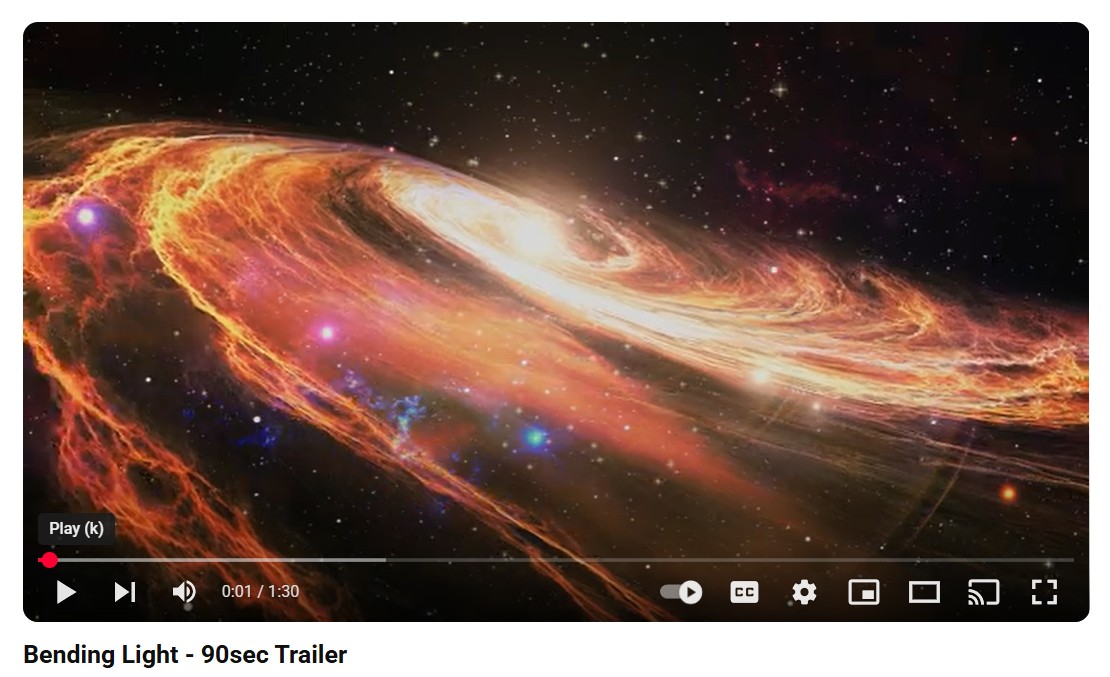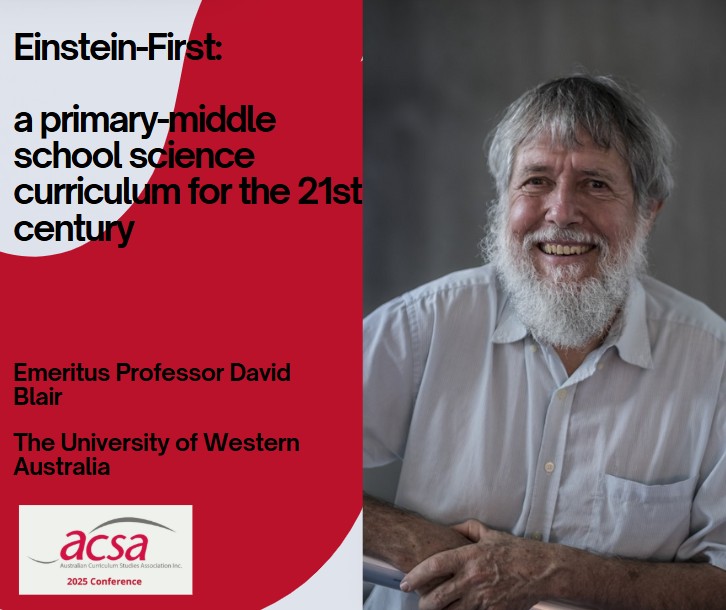
Bending Light Trailer
For Teachers: Full access is available through Click View
David Blair is a gravitational wave physicist who spent more than 4 decades developing methods for the detection of gravitational waves. In 1984 he invented the sapphire clock. During the 1990s he built the Gingin gravitational wave research centre and developed techniques for preventing instability in the very high optical power instruments needed for detecting gravitational waves detectors. He led a team of 20 physicists who participated in the discovery of gravitational waves in 2015. He is a founding member of the OzGrav Centre of Excellence for Gravitational Wave Discovery.
In 2003 Blair founded the Gravity Discovery Centre – a major Centre for the promotion of science in Western Australia. In 2010 Blair initiated education trials that developed into the Einstein-First Project, that replaces traditional school science with a modern understanding of space, time, matter and radiation to children from age 7. National funding has allowed the project to expand nationally with schools taking it up across Australia
Blair is a Fellow of the Australian Academy of Science and the American Physical Society. He shared the International Breakthrough Prize with all members of the LIGO Scientific Collaboration in 2016, he was inducted into the Science Hall of Fame in 2018, received the Prime Minister’s Prize for Science in 2020 and his team won the Premier’s Prize for Science Engagement in 2024.
Blair recently published “Uncovering Einstein’s New Universe” that traces the journey of discovery from the confirmation of general relativity in Western Australia in 1922, to the discoveries of gravitational waves that have revealed a universe full of colliding black holes. He has given numerous public lectures and participated in the 2024 documentary Bending Light.
Selected Prizes, Distinctions and Awards:
1988 Marcel Grossmann Institutional Award for Research in Gravitation and Astrophysics
1992 NASA Group Achievement Award
1993 75th Anniversary Award, The University of Western Australia
1995 Australian Institute of Physics Walter Boas Medal.
2000 Citation: Most Outstanding Review Paper, Reports on the Progress of Physics
2003 Clunies Ross National Science and Technology Medal
2003 a) National Medal for Community Service b) Centenary Medal for Service to Science
2005 Australia-New Zealand Association for the Advancement of Science Medal
2005 Eureka Prize for Promoting the Understanding of Science
2006 Western Australian Champion Award
2007 Western Australian Scientist of the Year 2007-8
2016 *Gruber Cosmology Prize
2016 *International Breakthrough Prize for Fundamental Physics
2017 *Royal Astronomical Society Group Achievement Award ‘A’
2017 AAS Bruno Rossi Prize Shared award with members of the LIGO Scientific Collaboration
2018 West Australian Scientists Hall of Fame
2020 Prime Minister’s Prize for Science
2024 Premier’s Prize for Science Engagement

